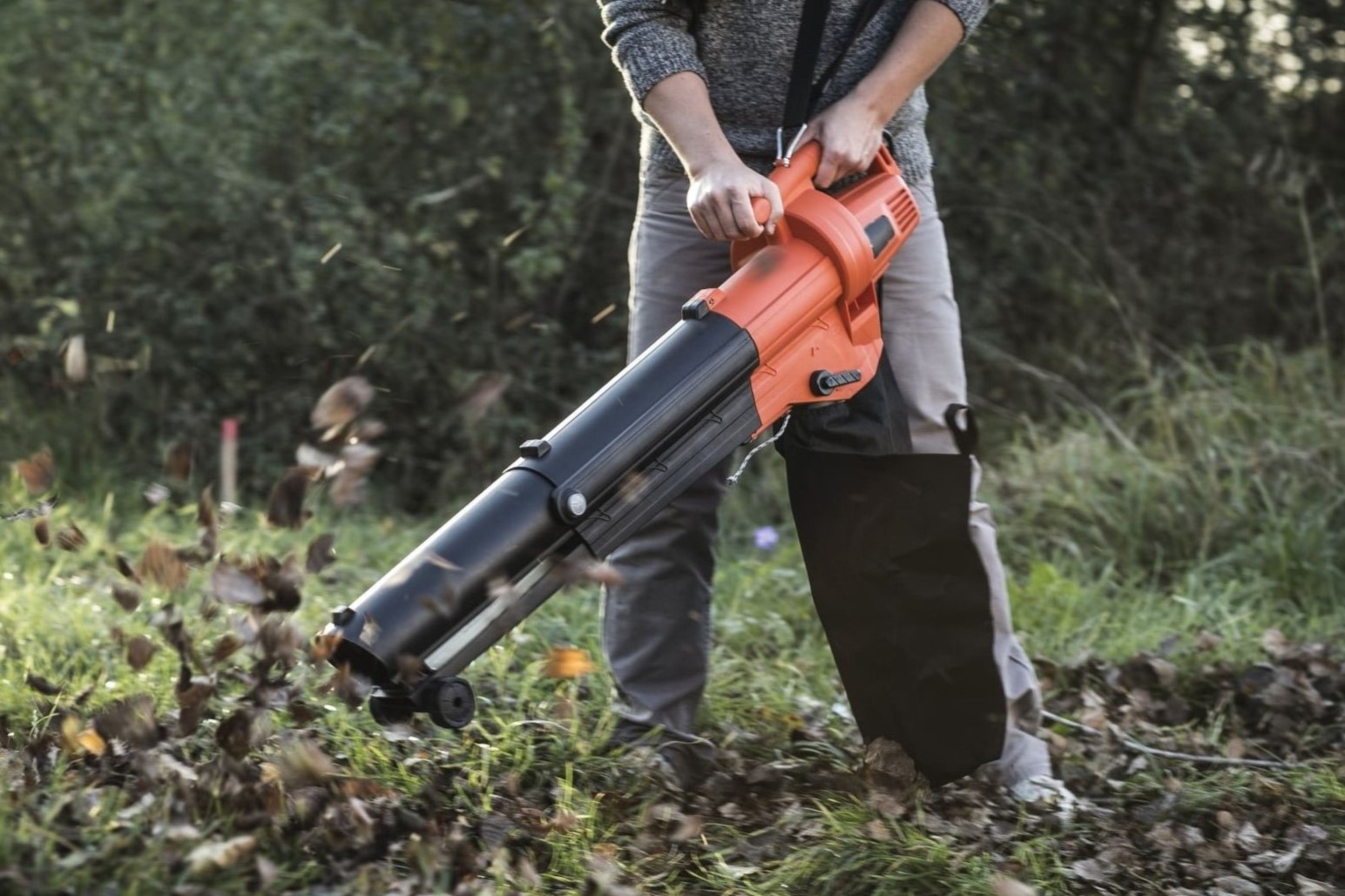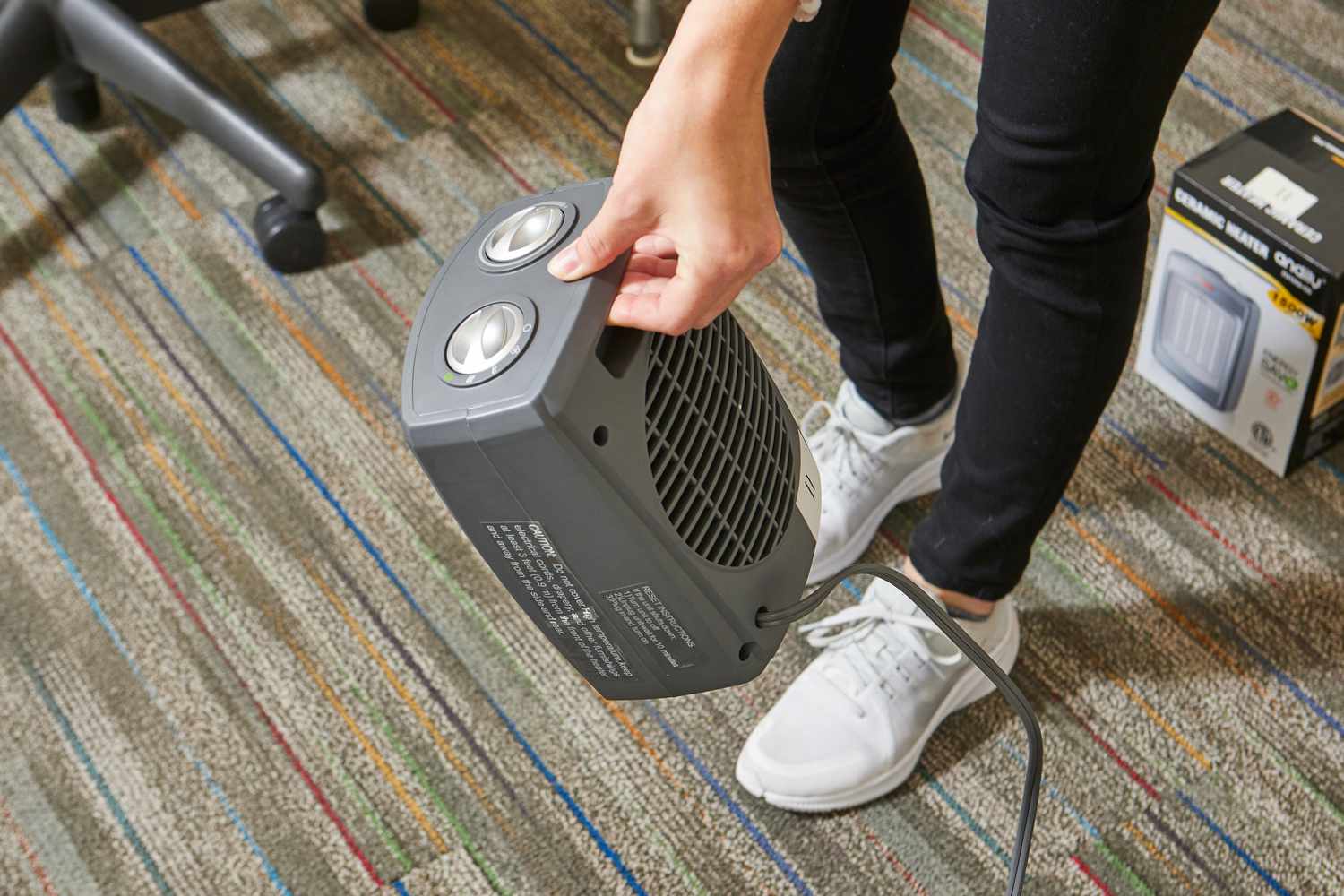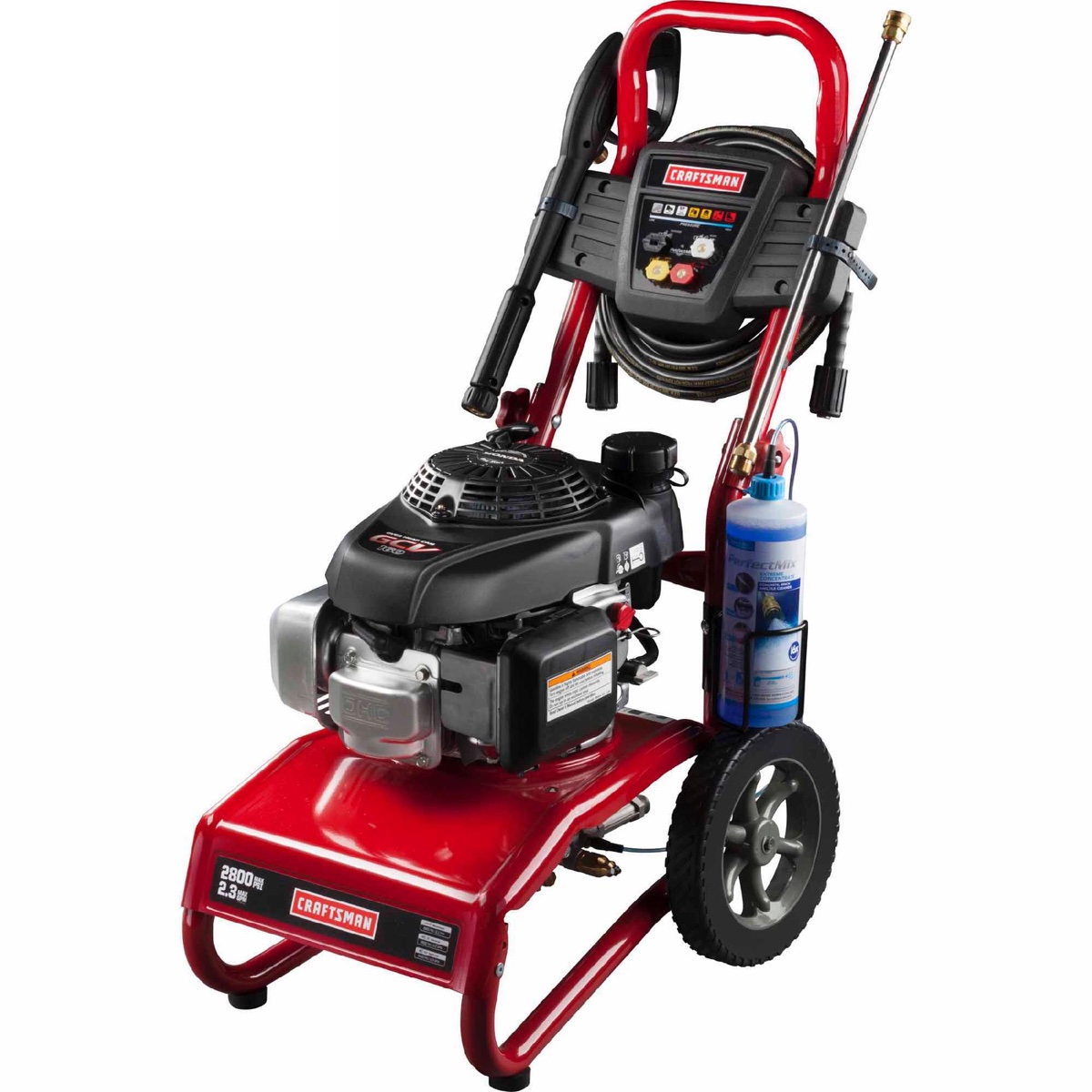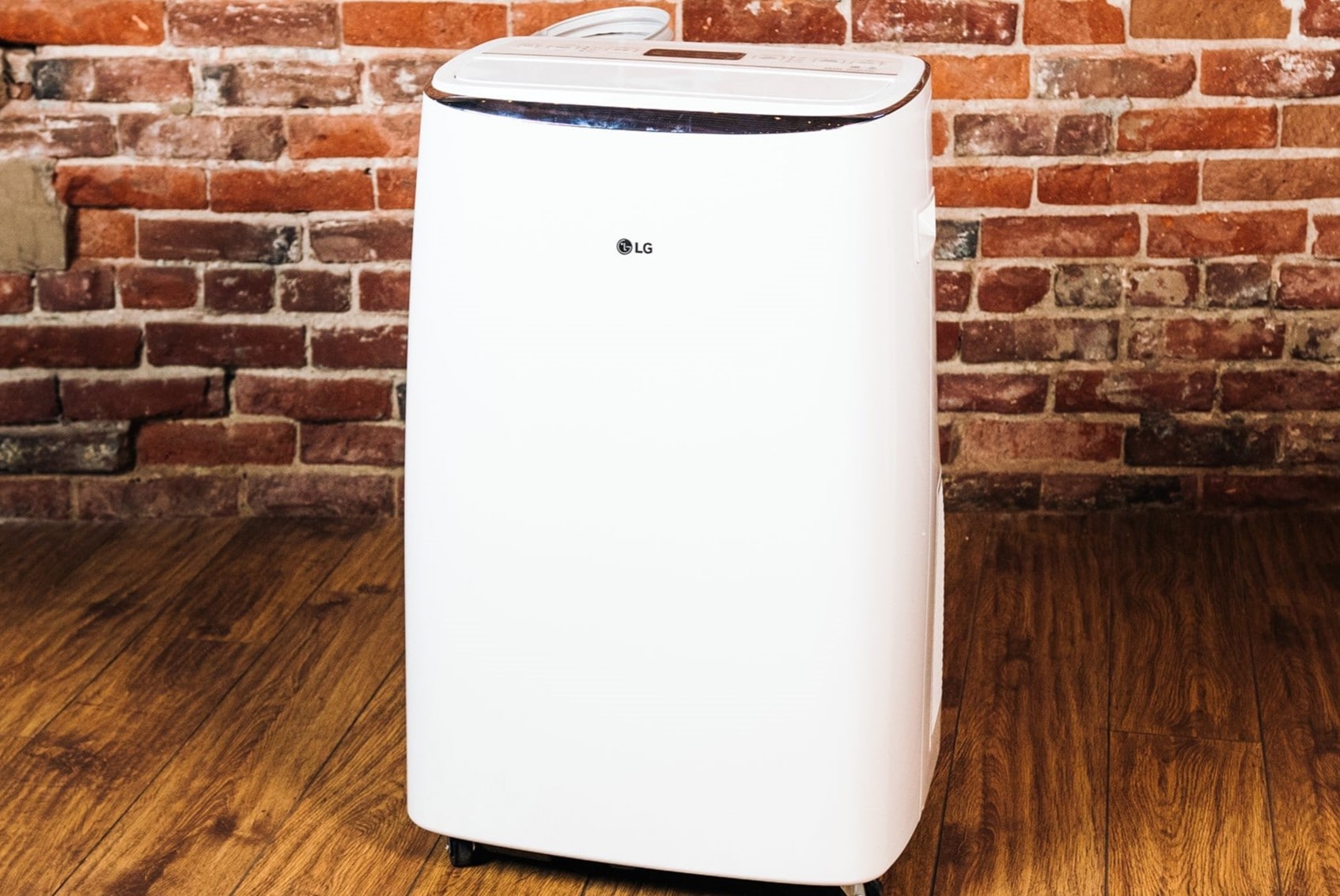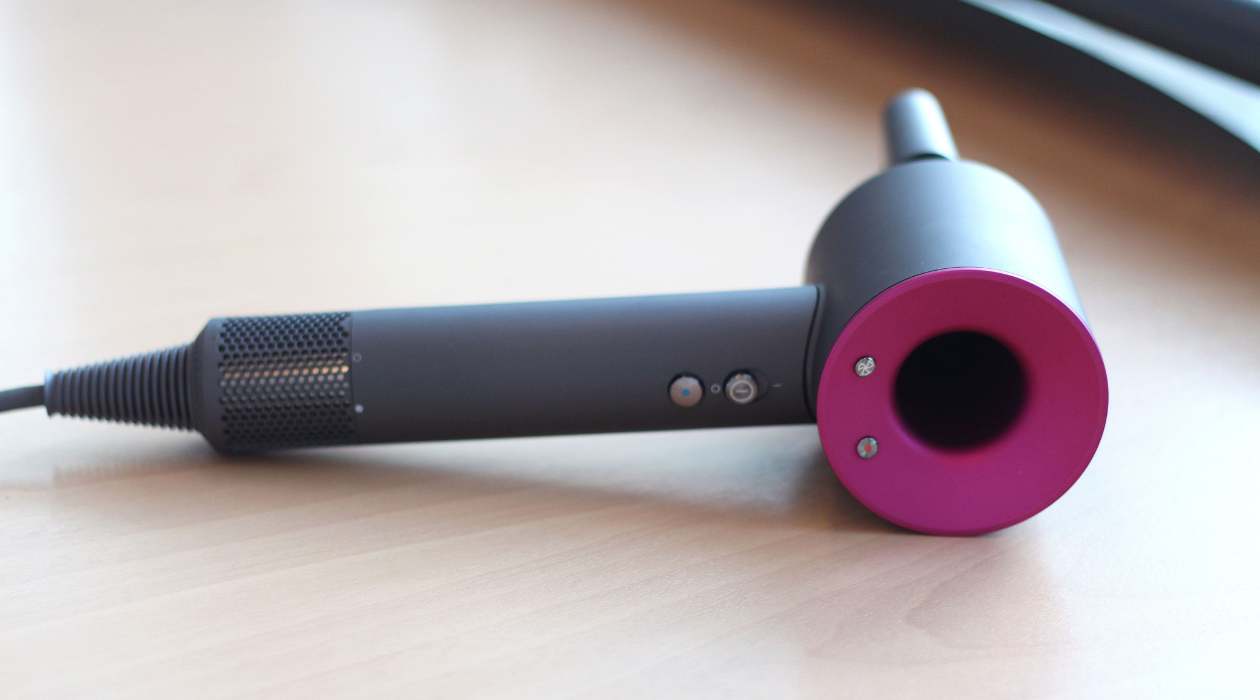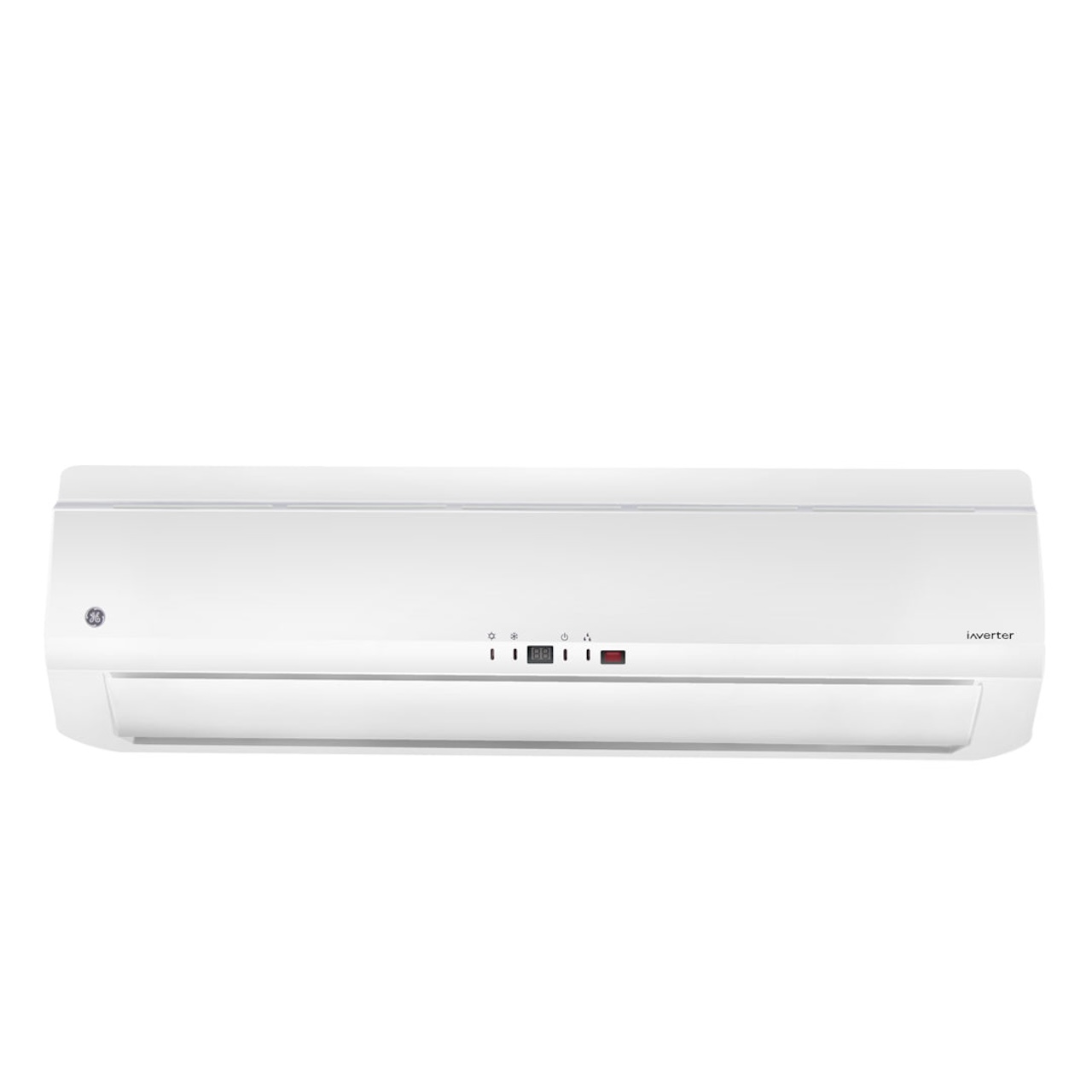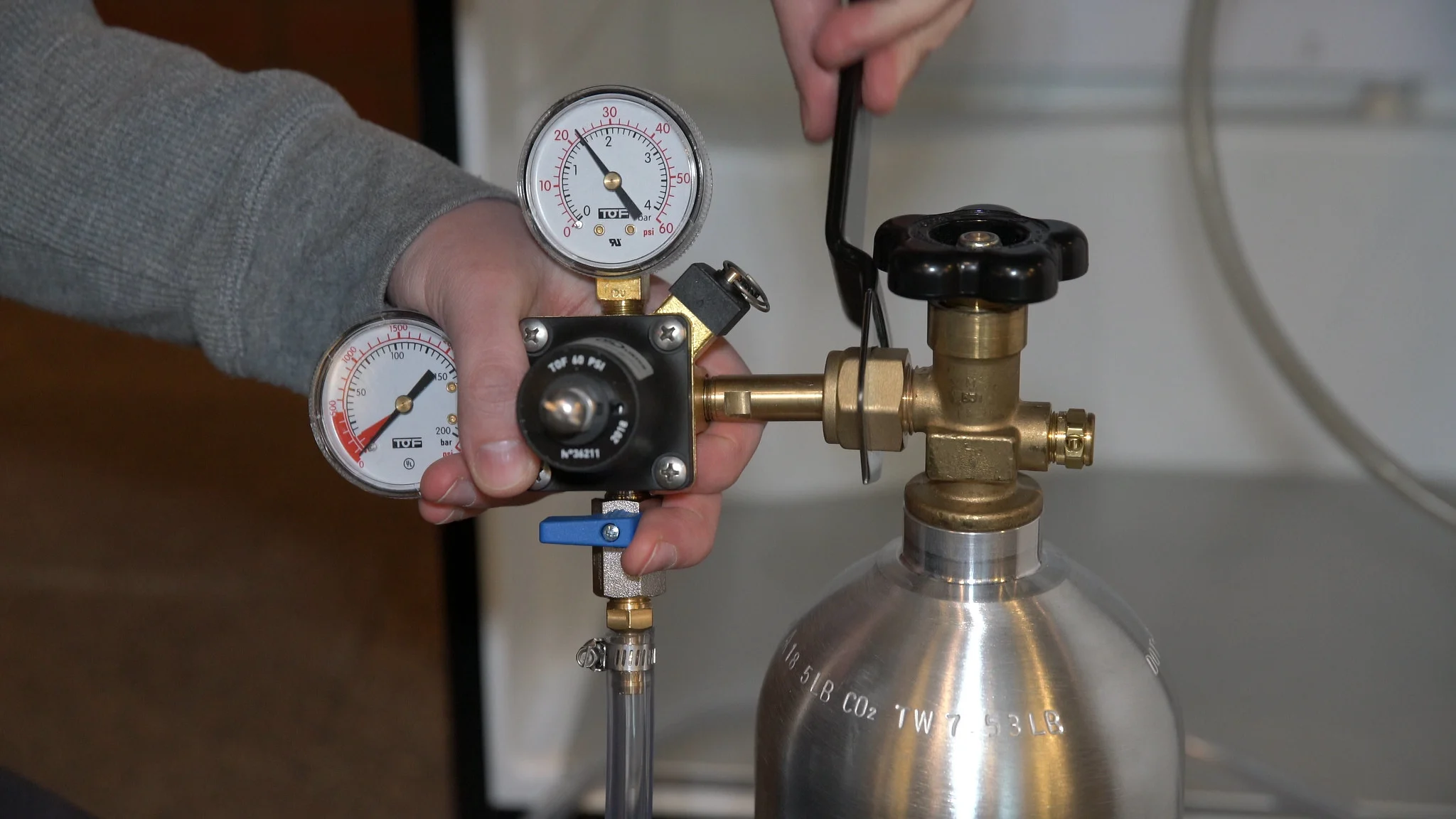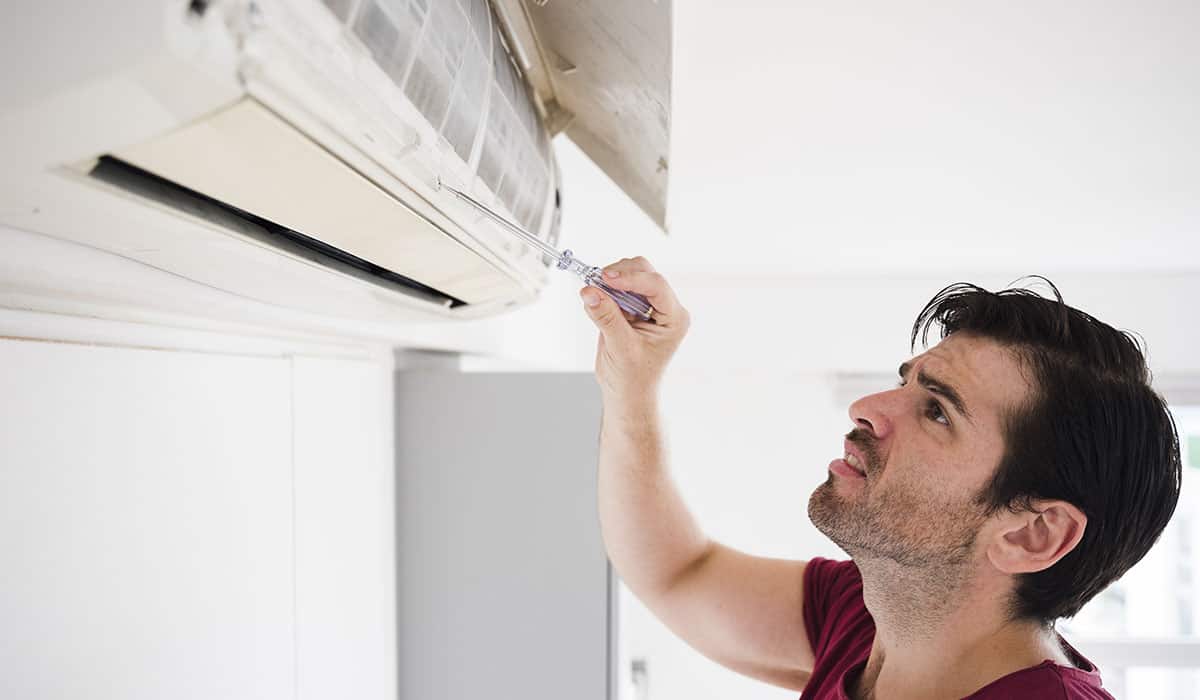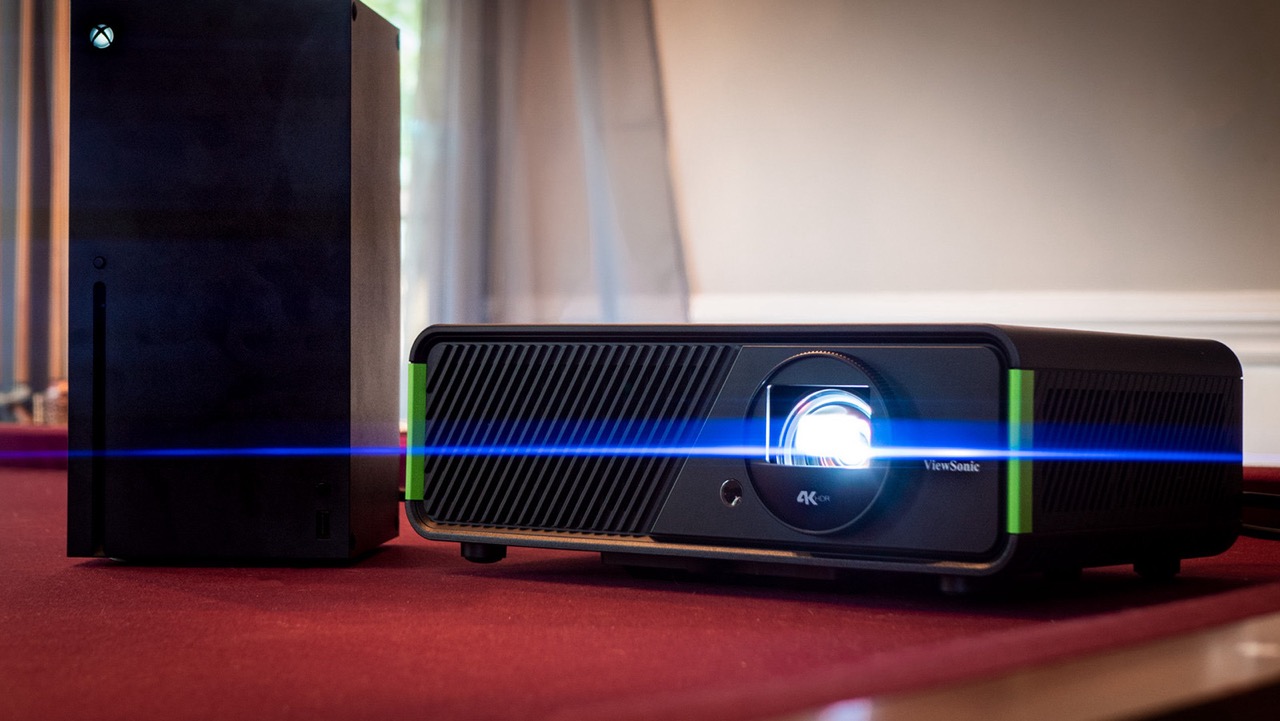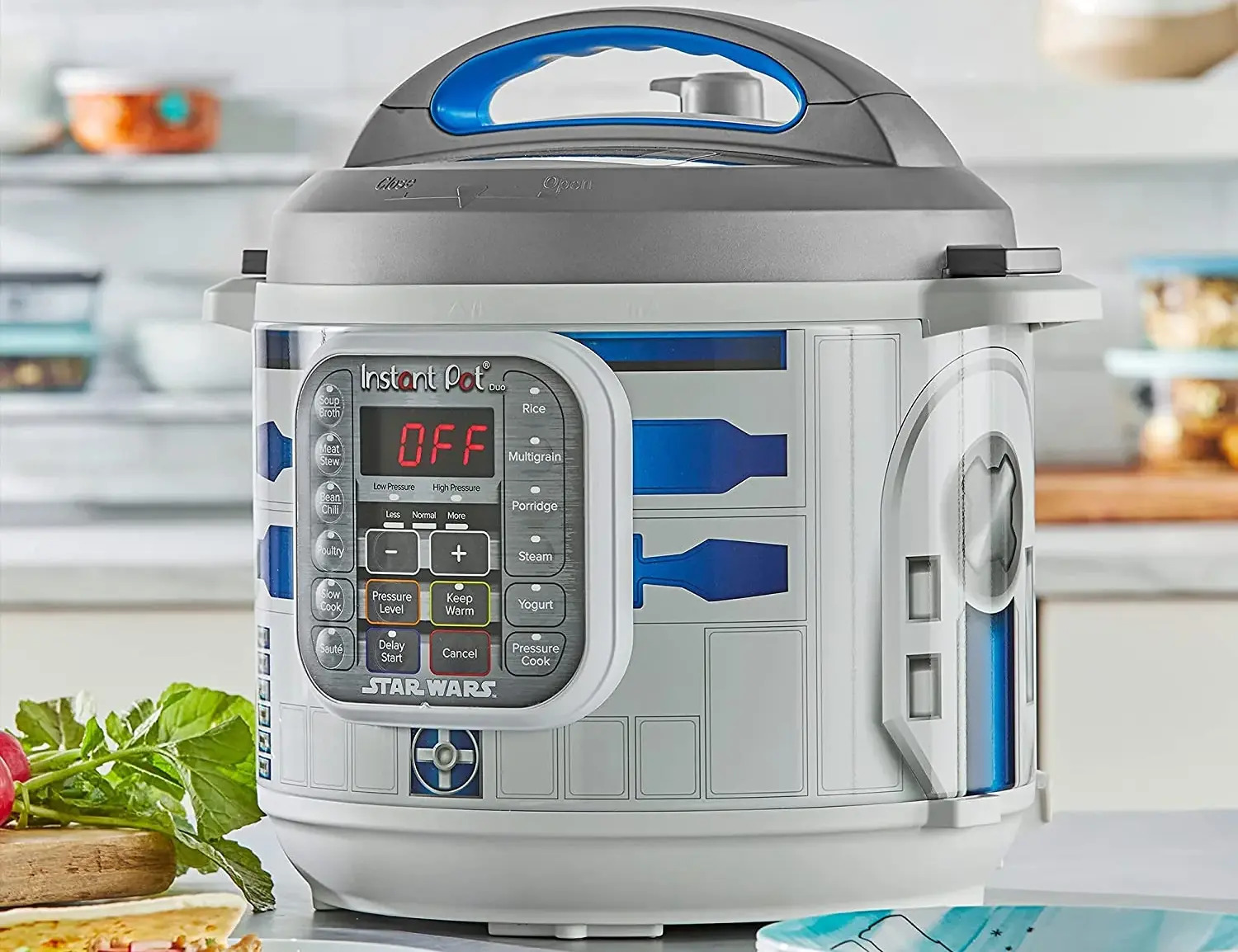Home>Home Maintenance>Why Does My Air Conditioning Keep Shutting Off
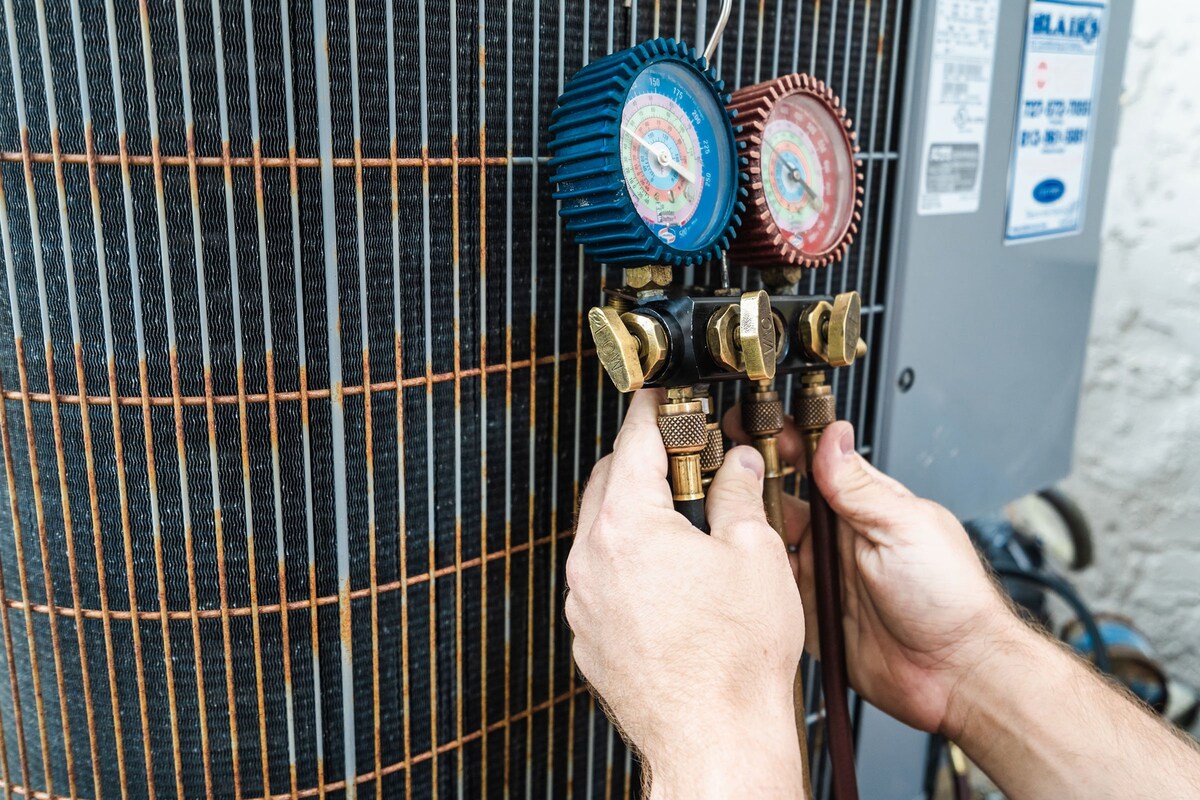

Home Maintenance
Why Does My Air Conditioning Keep Shutting Off
Modified: March 6, 2024
Discover common reasons why your air conditioning keeps shutting off and learn important tips for home maintenance to prevent this issue.
(Many of the links in this article redirect to a specific reviewed product. Your purchase of these products through affiliate links helps to generate commission for Storables.com, at no extra cost. Learn more)
Introduction
Welcome to the world of home maintenance, where every homeowner faces their fair share of challenges. One common issue that many homeowners encounter is their air conditioning system constantly shutting off. It can be frustrating and inconvenient, especially during the hot summer months when you rely on your AC for comfort. But fear not, as this article will delve into the various reasons behind this problem and provide you with actionable solutions to prevent your air conditioning from shutting off unexpectedly.
Understanding the root causes behind your air conditioning system shutting off is crucial to resolving the issue effectively. Whether it’s overheating, a dirty air filter, low refrigerant levels, electrical issues, thermostat problems, or sensor malfunctions, there are specific steps you can take to rectify the problem and ensure your AC operates smoothly.
Proper maintenance and troubleshooting can save you from a costly repair or replacement of your air conditioning system. By following the corrective measures outlined in this article, you can address the most common causes of air conditioning shutdowns and maintain a comfortable temperature in your home.
So, let’s dive in and explore the various reasons why your air conditioning keeps shutting off and how you can resolve these issues to keep your home cool and comfortable all year round.
Key Takeaways:
- Regular maintenance and cleaning of air filters, along with checking and maintaining proper refrigerant levels, can prevent unexpected air conditioning shutdowns and ensure a cool and comfortable home environment.
- Addressing electrical issues, calibrating or replacing thermostats, and fixing or replacing faulty sensors are crucial steps to prevent air conditioning shutdowns and maintain reliable cooling performance.
Read more: Why Does My Ryobi Mower Keep Shutting Off
Common Reasons for Air Conditioning Shutting Off
There can be several underlying reasons why your air conditioning system keeps shutting off. Understanding these common issues can help you diagnose the problem and determine the appropriate course of action. The primary causes of air conditioning shutdowns include:
- Overheating: One of the most common reasons for AC shutdowns is overheating. Your air conditioning system is designed to keep your home cool, but if it becomes overloaded or encounters a malfunction, it may shut off to prevent further damage. Overheating can occur due to a variety of factors, including a clogged condenser coil, restricted airflow, or a malfunctioning fan motor. Regular maintenance and cleaning can help prevent overheating.
- Dirty Air Filter: A dirty air filter can cause your air conditioning system to shut off as it restricts the airflow and puts extra strain on the system. When the filter is clogged with dust, dirt, and debris, it can lead to reduced efficiency and cause the system to overheat. Regularly cleaning or replacing your air filter is essential to maintain optimal airflow and prevent shutdowns.
- Low Refrigerant Levels: Refrigerant is essential for your air conditioning system to cool your home. If your system is low on refrigerant, it can lead to improper cooling and cause the AC to shut off. Leaks or inadequate charging during installation can result in low refrigerant levels. It’s important to have a professional HVAC technician inspect and recharge your system to ensure the correct refrigerant levels.
- Electrical Issues: Electrical problems can also cause your air conditioning system to shut off unexpectedly. Issues such as faulty wiring, tripped breakers, or blown fuses can interrupt the power supply to your AC unit, resulting in shutdowns. It’s crucial to examine the electrical components and connections to identify and resolve any wiring issues.
- Thermostat Problems: A malfunctioning thermostat can cause your air conditioning system to cycle on and off irregularly or shut off completely. Improper temperature calibration, a dead battery, or a faulty thermostat sensor can all contribute to shutdowns. Regularly check and calibrate your thermostat to ensure accurate temperature readings and proper functioning.
- Sensor Malfunctions: Your air conditioning system relies on various sensors to detect temperature, pressure, and other factors. If these sensors become dirty, damaged, or malfunction, they can cause your AC system to shut off unexpectedly. Cleaning or replacing faulty sensors can resolve this issue and prevent further shutdowns.
By understanding these common reasons behind your air conditioning system shutting off, you can take the necessary steps to address the problem effectively. In the following sections, we will explore the corrective measures you can take to prevent air conditioning shutdowns and keep your system running smoothly.
Overheating
One of the most common reasons for your air conditioning system shutting off is overheating. Your AC system is designed to dissipate heat and keep your home cool, but when it becomes overloaded or encounters a malfunction, it may shut off as a protective measure.
Several factors can contribute to overheating in your air conditioning system. One common culprit is a clogged condenser coil. Over time, dirt, debris, and other particles can accumulate on the coil, obstructing the airflow and inhibiting heat transfer. This can cause the system to work harder and generate excessive heat, leading to shutdowns. Regularly cleaning the condenser coil can help prevent this issue and promote efficient cooling.
Restricted airflow can also contribute to overheating. A blocked or dirty air intake vent, obstructed air ducts, or closed vents can limit the amount of air that flows into your system. When airflow is restricted, the system has to work harder to cool your home, leading to increased heat generation and potential shutdowns. Keep your air intake vents clean and clear of any obstructions and ensure that your air ducts and vents are free from blockages.
Malfunctioning fan motors can also cause overheating in your air conditioning system. The fan motor plays a crucial role in circulating air over the condenser coil, assisting in heat dissipation. If the fan motor is not functioning correctly, the airflow may be insufficient, resulting in heat buildup and shutdowns. Regular maintenance and inspection of the fan motor can help identify any issues and prevent overheating.
To prevent overheating and ensure the proper functioning of your air conditioning system, it is important to schedule regular maintenance with a professional HVAC technician. They can inspect and clean the condenser coil, check the airflow, and ensure that all components are working correctly. Additionally, make sure that the area around the outdoor unit is clear of debris, vegetation, and any obstructions to allow for adequate airflow.
By addressing the issue of overheating in your air conditioning system, you can prevent unexpected shutdowns and ensure a comfortable and cool home environment.
Dirty Air Filter
A dirty air filter is another common reason for your air conditioning system to shut off unexpectedly. The air filter plays a crucial role in maintaining good indoor air quality and protecting the system from dust, dirt, and debris. However, when the air filter becomes dirty and clogged, it can restrict airflow, putting extra strain on the system and causing it to shut off.
When the air filter is clogged, the airflow through the system becomes restricted, preventing the proper circulation of air. This can impede the cooling process and lead to inadequate ventilation in your home. As a result, the temperature inside the system rises, triggering the safety mechanism to shut off the AC system.
To prevent this issue, it is important to regularly clean or replace your air filter. The frequency of filter cleaning or replacement depends on several factors, including the type of filter, the level of air pollutants in your home, and the usage of your air conditioning system. As a general guideline, disposable filters should be replaced every one to three months, while reusable filters should be cleaned according to the manufacturer’s instructions.
Cleaning or replacing the air filter is a simple task that can significantly improve the efficiency and performance of your air conditioning system. Start by locating the air filter, which is typically found behind the return air grille or inside the air handler unit. Remove the filter and inspect it for dust, dirt, and debris. If the filter is dirty, gently clean it with a vacuum or rinse it with water, depending on the type of filter. If it is beyond cleaning, replace it with a new filter of the same size and type.
Regularly maintaining a clean air filter not only improves the airflow and prevents shutdowns but also helps prolong the lifespan of your air conditioning system. It reduces the strain on the blower motor, improves energy efficiency, and ensures better indoor air quality for you and your family.
Remember, a clean air filter is key to the optimal performance of your air conditioning system. Make it a habit to inspect and clean or replace your filter regularly to prevent unexpected shutdowns and keep your home cool and comfortable.
Low Refrigerant Levels
Low refrigerant levels can be a significant cause of your air conditioning system shutting off. Refrigerant is the substance responsible for absorbing heat from the indoor air and transferring it outside, resulting in cool air being circulated back into your home. When the refrigerant levels are low, the cooling process becomes compromised, and the system may shut off as a safety precaution.
Refrigerant levels can decrease due to leaks or insufficient charging during the installation process. Over time, these leaks can lead to a gradual decrease in refrigerant levels, impacting the cooling capacity of your AC system. If your air conditioning system is low on refrigerant, it will struggle to cool your home effectively, leading to inconsistent cooling and shutdowns.
Identifying and addressing refrigerant leaks requires the expertise of a professional HVAC technician. They can inspect the system, locate any leaks, and repair them to prevent further refrigerant loss. Once the leaks are repaired, the technician will recharge the system with the appropriate amount of refrigerant to restore optimal cooling performance.
It is important to note that recharging the refrigerant is not a DIY task. Specialized equipment and knowledge are needed to ensure a proper balance of refrigerant in the system, preventing overcharging or undercharging, which can lead to further complications.
To avoid low refrigerant levels and potential shutdowns, it is recommended to schedule regular maintenance visits with a qualified technician. During these visits, they can check the refrigerant levels, inspect for leaks, and perform any necessary repairs or recharging.
By maintaining the proper refrigerant levels in your air conditioning system, you can ensure consistent cooling performance and minimize the risk of unexpected shutdowns, keeping your home comfortable even during the hottest months of the year.
Electrical Issues
Electrical issues can be a common cause of air conditioning system shutdowns. Problems with the electrical components and connections can interrupt the power supply to your AC unit, causing it to shut off unexpectedly. If you are experiencing frequent shutdowns, it’s crucial to inspect the electrical system of your air conditioning system.
One possible electrical issue is faulty wiring. Over time, wires can become frayed or damaged, leading to poor electrical connections. Additionally, improper installation or repairs can result in wiring problems, disrupting the flow of electricity to the AC unit. If you suspect electrical wiring issues, it is important to consult a qualified electrician to inspect and repair any faulty wiring connections.
Tripped circuit breakers or blown fuses can also cause your air conditioning system to shut off. These safety devices are designed to protect your electrical system from overload or short circuits. If your AC system repeatedly trips the circuit breaker or blows fuses, it may be a sign of an underlying electrical problem. In such cases, it’s recommended to consult an electrician to investigate the root cause and make necessary repairs.
In some instances, the problem may lie with a malfunctioning capacitor. The capacitor is responsible for sending electrical voltage to the motors that power the compressor and fans in your AC system. When the capacitor fails, it can disrupt the electrical supply and cause your system to shut off. A professional technician can identify and replace a faulty capacitor to resolve this issue.
It’s important to remember that working with electrical components can be dangerous and should only be done by trained professionals. If you suspect any electrical issues with your air conditioning system, it is recommended to consult an experienced HVAC technician or electrician to diagnose and address the problem safely.
Regular maintenance and inspections of your electrical system can help identify and prevent potential problems before they escalate. Keep an eye out for any signs of electrical issues, such as flickering lights, burning smells, or unusual noises, and address them promptly to avoid unexpected shutdowns and ensure the safe operation of your air conditioning system.
Thermostat Problems
A malfunctioning thermostat can contribute to your air conditioning system shutting off unexpectedly. The thermostat is responsible for regulating the temperature in your home and communicating with the AC system to provide the desired level of cooling. If the thermostat is not functioning correctly, it can cause irregular cycling or complete shutdowns of the air conditioning system.
One common issue with thermostats is improper temperature calibration. Over time, thermostats can become inaccurate due to factors such as dust accumulation or normal wear and tear. An incorrectly calibrated thermostat may not accurately sense the temperature, resulting in inconsistent cooling or unnecessary shutdowns of the system. Recalibrating the thermostat or replacing it with a more accurate model can help resolve this problem.
Another potential problem with thermostats is a dead battery. Many thermostats are battery-operated, and if the battery is low or dead, it can cause the thermostat to stop functioning properly. In this case, simply replacing the battery may solve the issue and prevent shutdowns of your air conditioning system.
Thermostat sensor malfunctions can also trigger shutdowns. The sensor is responsible for detecting the ambient temperature in your home and signaling the AC system to turn on or off accordingly. If the sensor becomes dirty, damaged, or incorrectly positioned, it may provide inaccurate temperature readings, leading to improper cooling and system shutdowns. Cleaning or replacing the sensor, or adjusting its position, can help ensure accurate temperature detection and prevent unnecessary shutdowns.
If you are experiencing thermostat-related issues, it is recommended to consult a professional HVAC technician. They can inspect the thermostat, check for calibration or sensor errors, and make any necessary adjustments or replacements. Additionally, a technician can also upgrade your thermostat to a programmable or smart thermostat, which offers advanced features and precise temperature control.
Regularly checking and calibrating your thermostat can help maintain accurate temperature control, prevent sudden shutdowns, and optimize the performance of your air conditioning system. Keeping your thermostat in good working condition ensures that your home remains cool and comfortable when you need it the most.
Sensor Malfunctions
When it comes to the proper functioning of your air conditioning system, the sensors play a crucial role. These sensors are responsible for detecting various factors such as temperature, pressure, and humidity to ensure optimal cooling performance. However, if these sensors become dirty, damaged, or malfunctioning, they can cause your AC system to shut off unexpectedly.
One common sensor in an air conditioning system is the temperature sensor. This sensor measures the ambient temperature in your home and sends a signal to the AC system to adjust the cooling accordingly. If the temperature sensor becomes dirty or covered in dust, it may not accurately detect the temperature, leading to erratic cooling and potential shutdowns. Cleaning the temperature sensor can often resolve this issue and restore proper functioning.
Another important sensor is the pressure sensor, which monitors the pressure of the refrigerant in the AC system. If the pressure sensor is malfunctioning or providing incorrect readings, it can result in an imbalance in the refrigerant levels or improper cooling. This can cause the AC system to shut off as a safety mechanism. Replacing a faulty pressure sensor can rectify this issue and prevent unexpected shutdowns.
Humidity sensors, though less common, are also present in some air conditioning systems. These sensors detect the humidity levels in the air and signal the AC system to adjust the cooling accordingly. If the humidity sensor malfunctions or provides inaccurate readings, it can impact the system’s ability to dehumidify the air, leading to discomfort and potential shutdowns. Replacing or calibrating the humidity sensor can help maintain a comfortable indoor environment.
It’s important to note that sensor malfunctions are best addressed by a professional HVAC technician. They have the expertise and tools to diagnose and repair or replace the faulty sensors. During regular maintenance visits, technicians can inspect the sensors, clean them if necessary, and make any adjustments or replacements to ensure accurate readings and proper functioning.
By addressing sensor malfunctions promptly, you can prevent unnecessary shutdowns, maintain a comfortable indoor environment, and optimize the performance of your air conditioning system.
Check your air filter. A dirty filter can restrict airflow and cause the system to shut off. Replace the filter regularly to keep your AC running smoothly.
Corrective Measures to Prevent Air Conditioning Shutdowns
Experiencing frequent air conditioning system shutdowns can be frustrating, especially during the hot summer months when you rely on your AC for relief. Fortunately, there are several corrective measures you can take to prevent these shutdowns and ensure the smooth operation of your air conditioning system. By addressing the common issues mentioned earlier and following these preventive steps, you can maintain a cool and comfortable home environment.
- Regular Maintenance: Scheduling regular maintenance with a professional HVAC technician is essential for the optimal functioning of your air conditioning system. During these visits, the technician will inspect the system, identify any potential issues, and perform necessary repairs or cleaning. Regular maintenance can help prevent problems before they escalate and contribute to unexpected shutdowns.
- Clean or Replace Air Filters: Dirty air filters can restrict airflow, strain the system, and lead to shutdowns. Ensure that you clean or replace your air filters regularly, following the manufacturer’s recommendations. This will maintain proper airflow and prevent debris from entering the system.
- Check Refrigerant Levels: Low refrigerant levels can hinder cooling efficiency and cause the AC system to shut off. Consult a professional HVAC technician who can inspect and recharge the system with the appropriate amount of refrigerant. This will ensure optimal cooling performance and prevent unexpected shutdowns.
- Inspect and Repair Electrical Connections: Electrical issues can disrupt the power supply to your air conditioning system, leading to shutdowns. Regularly inspect the electrical components and connections for any signs of damage or loose connections. Consult a qualified electrician to address any electrical problems and ensure safe and reliable operation.
- Calibrate or Replace Thermostat: A malfunctioning thermostat can cause irregular cycling or complete shutdowns of the air conditioning system. Check the thermostat for proper calibration and replace it if necessary. Upgrading to a programmable or smart thermostat can enhance temperature control and improve energy efficiency.
- Fix or Replace Faulty Sensors: Malfunctioning sensors can disrupt the proper functioning of your air conditioning system. Have a professional HVAC technician inspect and clean the sensors, calibrate them if needed, or replace them if they are faulty. This will ensure accurate readings and prevent shutdowns.
By implementing these corrective measures and performing regular maintenance, you can prevent air conditioning shutdowns and enjoy a cool and comfortable home throughout the year. Remember, if you encounter any complex issues or are unsure about the proper maintenance procedures, it’s always best to consult a qualified HVAC technician for professional assistance.
Regular Maintenance
Regular maintenance of your air conditioning system is crucial for preventing unexpected shutdowns and ensuring its smooth operation. By scheduling routine maintenance with a professional HVAC technician, you can identify and address any potential issues before they turn into major problems. Here are some key aspects of regular maintenance that can help keep your air conditioning system running efficiently:
Inspection: During a maintenance visit, a qualified technician will thoroughly inspect your air conditioning system, checking for any signs of wear and tear or potential malfunctions. They will examine components such as the condenser coil, fan motor, electrical connections, and sensors to ensure everything is in proper working condition.
Cleaning: Over time, dust, dirt, and debris can accumulate in your air conditioning system, hindering its performance. During maintenance, the technician will clean various components, such as the condenser coil and air filters. This helps improve airflow, prevents blockages, and minimizes strain on the system, reducing the risk of shutdowns.
Lubrication: Moving parts within the air conditioning system, such as fan motors and bearings, require proper lubrication to function smoothly. During maintenance, the technician will ensure that all necessary components are lubricated, reducing friction and extending the lifespan of these parts.
Tightening and Adjustments: Vibration and regular use can cause bolts and connections within the air conditioning system to loosen over time. The technician will check and tighten these connections, ensuring that all components are securely in place. They will also make any necessary adjustments to ensure the system is properly calibrated for optimal performance.
Refrigerant Level Check: The refrigerant in your air conditioning system is vital for proper cooling. During maintenance, the technician will check the refrigerant levels to ensure they are within the recommended range. If the levels are low, they will recharge the system with the appropriate amount of refrigerant, preventing shutdowns caused by insufficient cooling.
Regular maintenance not only helps prevent unexpected shutdowns but also extends the lifespan of your air conditioning system and improves its energy efficiency. It ensures that your AC operates at its peak performance, providing reliable cooling and keeping your home comfortable throughout the year.
It’s important to follow the manufacturer’s recommendations for maintenance intervals and consult with a professional HVAC technician for the best practices specific to your air conditioning system. By investing in regular maintenance, you can enjoy the benefits of a well-functioning air conditioning system and minimize the possibility of frustrating shutdowns.
Clean or Replace Air Filters
One of the simplest yet most important maintenance tasks for your air conditioning system is to clean or replace the air filters regularly. Air filters are responsible for removing dust, dirt, allergens, and other airborne particles from the air circulating through your AC system. Over time, these filters can become clogged and dirty, which restricts airflow and ultimately impacts the performance of your air conditioning system.
When the air filters are dirty, the system has to work harder to push the air through, leading to decreased airflow and reduced cooling efficiency. This can put unnecessary strain on the components of your air conditioning system and cause it to shut off as a safety measure to prevent further damage.
Regularly cleaning or replacing the air filters is essential to maintain proper airflow and prevent shutdowns. The frequency at which you should clean or replace the filters depends on several factors, including the type of filter, the level of air pollutants in your home, and the usage of your air conditioning system. As a general rule of thumb, it is recommended to clean or replace disposable filters every one to three months, while reusable filters should be cleaned according to the manufacturer’s instructions.
Cleaning or replacing the air filters is a fairly simple process that can be done by following these steps:
- Locate the air filter, which is typically found behind the return air grille or inside the air handler unit.
- Remove the filter from its housing and inspect it for dust, dirt, and debris.
- If the filter is reusable, you can clean it by gently vacuuming or rinsing it with water, following the manufacturer’s instructions. Allow it to dry completely before reinstalling.
- If the filter is disposable or too dirty to clean, replace it with a new filter of the same size and type.
- Make sure the filter is properly installed, with the airflow direction arrow pointing towards the system.
Cleaning or replacing the air filters not only prevents unnecessary shutdowns but also improves indoor air quality by removing airborne contaminants. It also helps your air conditioning system operate more efficiently, reducing energy consumption and potentially extending the lifespan of the equipment.
Remember, maintaining clean and unobstructed air filters is essential for the optimal performance of your air conditioning system. Make it a habit to inspect and clean or replace your filters regularly to ensure proper airflow, prevent shutdowns, and enjoy clean and cool air in your home.
Check Refrigerant Levels
Proper refrigerant levels are essential for the optimal performance of your air conditioning system. Refrigerant is the substance responsible for absorbing heat from the indoor air and transferring it outside, resulting in cool air being circulated back into your home. If the refrigerant levels are too low, it can hinder the cooling process and cause your AC system to shut off unexpectedly.
Refrigerant levels can decrease over time due to factors such as leaks or insufficient charging during the installation process. If there is a refrigerant leak in your air conditioning system, it can lead to a gradual decrease in refrigerant levels, affecting the cooling capacity of the system. When the refrigerant levels are low, your AC system will struggle to cool your home effectively, leading to inconsistent cooling and potential shutdowns.
Checking and maintaining proper refrigerant levels should be done by a professional HVAC technician. They have the expertise and equipment necessary to accurately measure the refrigerant levels in your system. During a maintenance visit, a technician can conduct a refrigerant level check and assess if any adjustments or recharging are necessary.
If the technician determines that your air conditioning system is low on refrigerant, they will perform the following steps to address the issue:
- Locate and repair any refrigerant leaks that may have caused the decrease in levels.
- Ensure that the repaired system is free from any leaks by conducting a thorough inspection.
- Recharge the system with the appropriate amount of refrigerant to restore optimal cooling performance.
It is important to note that checking and adjusting refrigerant levels is not a DIY task. Specialized tools and knowledge are required to ensure the proper balance of refrigerant in the system, preventing overcharging or undercharging, which can lead to further complications and potential damage to the equipment.
Regular maintenance, including checking refrigerant levels, helps ensure that your air conditioning system operates efficiently and minimizes the possibility of unexpected shutdowns. By addressing low refrigerant levels promptly, you can maintain consistent cooling performance, prolong the lifespan of your AC system, and enjoy a comfortable indoor environment.
Inspect and Repair Electrical Connections
The electrical connections in your air conditioning system play a vital role in its proper operation. Electrical issues can disrupt the power supply and cause your AC system to shut off unexpectedly. Regularly inspecting and repairing electrical connections is essential to prevent these shutdowns and ensure the safe and reliable functioning of your air conditioning system.
Over time, electrical connections within your AC system can become loose or corroded due to normal wear and tear, vibrations, or environmental factors. Loose connections can cause poor electrical flow, leading to reduced performance and potential system shutdowns.
Here’s how you can inspect and repair electrical connections:
- Turn off the power: Before inspecting any electrical connections, it is important to turn off the power to your air conditioning system. Locate the circuit breaker that controls the AC unit and switch it off to ensure your safety.
- Remove the access panel: Remove the access panel on your AC unit to gain access to the electrical components and connections.
- Inspect the connections: Visually inspect the electrical connections for signs of damage, loose wires, or corrosion. Look for any frayed or exposed wires that may pose a risk.
- Tighten loose connections: Using a screwdriver or appropriate tools, gently tighten any loose connections. Ensure that the connections are secure but avoid overtightening, as it can lead to damage.
- Clean corrosion: If you notice any corrosion on the electrical connections, use a wire brush or appropriate cleaning solution to gently remove the corrosion. Ensure that the connections are completely dry before reassembling.
- Replace damaged components: If you identify any damaged wires, connectors, or other electrical components, it is best to have them replaced by a professional HVAC technician. They can ensure that the new components are correctly installed and meet safety standards.
- Reassemble and restore power: Once you have inspected and repaired the electrical connections, reassemble the access panel securely. Then, switch on the power to your air conditioning system at the circuit breaker.
It’s important to note that working with electrical connections can be hazardous, and it is recommended to consult a qualified HVAC technician or electrician if you are unsure or uncomfortable performing these tasks. They have the expertise and knowledge to handle electrical components safely and effectively.
Regularly inspecting and repairing electrical connections in your air conditioning system can help maintain proper electrical flow, prevent unexpected shutdowns, and ensure the safe operation of your AC system. By addressing any electrical issues promptly, you can enjoy uninterrupted cooling and a comfortable home environment.
Read more: Why Does My Dryer Keep Shutting Off
Calibrate or Replace Thermostat
The thermostat is a critical component of your air conditioning system as it regulates the temperature in your home. Any malfunction in the thermostat can lead to irregular cycling or complete shutdowns of the AC system. Therefore, it is important to calibrate or replace the thermostat when necessary to maintain accurate temperature control and prevent unexpected shutdowns.
Over time, thermostats can become inaccurate due to factors such as dust accumulation, mechanical wear, or electrical issues. An incorrectly calibrated thermostat may not accurately sense the temperature, resulting in inconsistent cooling or premature shutdowns of the system.
Here are the steps to calibrate or replace your thermostat:
- Check for temperature accuracy: Use a separate thermometer to compare the temperature reading on your thermostat with the actual temperature in your home. If there is a significant difference, it may indicate a need for calibration or replacement.
- Recalibrate the thermostat: Some thermostats have a calibration feature that allows you to adjust the temperature readings. Refer to the manufacturer’s instructions to learn how to recalibrate your specific thermostat model. Follow the provided steps to ensure accurate temperature control.
- Replace the thermostat: If recalibration does not resolve the issue or if your thermostat is outdated or malfunctioning, it may be necessary to replace it with a new one. Programmable or smart thermostats offer advanced features such as precise temperature control, energy-saving modes, and scheduling capabilities. Consult with an HVAC professional to choose the right thermostat for your needs.
- Installation and setup: Installing a new thermostat may require wiring adjustments. Unless you have experience and knowledge in electrical systems, it is advisable to seek the assistance of a professional HVAC technician or electrician. They can ensure that the new thermostat is wired correctly and calibrated to provide accurate temperature readings.
Regularly calibrating or replacing your thermostat ensures accurate temperature control and eliminates any potential inconsistencies that may lead to unexpected shutdowns. A well-calibrated or updated thermostat allows your air conditioning system to operate efficiently, providing optimal comfort and energy savings.
Remember, thermostats are sensitive electronic devices, and improper handling during calibration or replacement can cause further issues. If you are unsure or uncomfortable performing these tasks, it is always best to consult a qualified professional who has the expertise and knowledge to calibrate or replace your thermostat correctly.
Fix or Replace Faulty Sensors
The sensors in your air conditioning system are responsible for detecting various factors such as temperature, pressure, and humidity. If these sensors become dirty, damaged, or malfunctioning, they can cause your AC system to shut off unexpectedly. It is important to address any issues with the sensors to maintain accurate readings and prevent shutdowns.
Here are the steps to fix or replace faulty sensors in your air conditioning system:
- Identify the faulty sensor: There are different sensors in an air conditioning system, such as temperature sensors, pressure sensors, and humidity sensors. Determine which sensor is causing the problem by observing the symptoms and consulting a professional technician.
- Clean the sensor: In some cases, sensor malfunctions can be attributed to dirt, dust, or debris buildup. Cleaning the sensor with a soft cloth or a gentle cleaning solution may help restore its functionality. Be cautious not to damage the sensor during the cleaning process.
- Replace the sensor: If cleaning the sensor does not resolve the issue, it may need to be replaced. Faulty sensors cannot provide accurate readings and can lead to improper system operation and shutdowns. Consult an HVAC technician to determine the appropriate replacement sensor for your specific make and model of air conditioning system.
- Professional inspection: HVAC technicians have the tools and expertise to diagnose and repair or replace faulty sensors effectively. They can assess the functionality of the sensors, ensure proper installation of replacements, and test the system to ensure accurate readings and optimal performance.
It is important to note that fixing or replacing faulty sensors is a task best performed by a qualified HVAC technician. They have the knowledge and experience to handle sensitive electronic components and can ensure that the replacement sensor is compatible and properly calibrated with your air conditioning system.
Regular sensor maintenance, including cleaning and inspection during routine maintenance visits, can help prevent sensor malfunctions before they lead to unexpected shutdowns. By keeping the sensors in good working condition and addressing any issues promptly, you can maintain accurate temperature, pressure, and humidity readings, ensuring efficient and reliable performance of your air conditioning system.
Conclusion
Dealing with frequent air conditioning shutdowns can be frustrating and inconvenient, especially during the hot summer months. However, by understanding the common reasons behind these shutdowns and implementing the necessary corrective measures, you can prevent them and maintain a cool and comfortable home environment.
Overheating, dirty air filters, low refrigerant levels, electrical issues, thermostat problems, and sensor malfunctions are among the common culprits behind air conditioning shutdowns. Regular maintenance, including cleaning or replacing air filters, checking refrigerant levels, inspecting and repairing electrical connections, calibrating or replacing thermostats, and fixing or replacing faulty sensors, can help prevent these shutdowns and ensure the smooth operation of your AC system.
Remember, maintenance tasks such as cleaning or replacing air filters and carrying out basic inspections can often be done by homeowners themselves. However, for more complex tasks like refrigerant checks, electrical repairs, and sensor replacements, it is best to seek the assistance of a professional HVAC technician. They have the knowledge, expertise, and equipment necessary to diagnose and resolve complex issues, ensuring the safety and efficiency of your air conditioning system.
By prioritizing regular maintenance and promptly addressing any issues, you can prolong the lifespan of your air conditioning system, improve its energy efficiency, and enjoy reliable and consistent cooling throughout the year. Don’t wait until you experience frequent shutdowns—take preventive measures to ensure a comfortable living space and maximize the performance of your HVAC system.
So, if you find that your air conditioning system keeps shutting off unexpectedly, don’t fret. Take action, implement the corrective measures outlined in this article, and consult with professionals when necessary. With regular maintenance and proactive care, you can keep your home cool, comfortable, and free from the frustration of unexpected air conditioning shutdowns.
Frequently Asked Questions about Why Does My Air Conditioning Keep Shutting Off
Was this page helpful?
At Storables.com, we guarantee accurate and reliable information. Our content, validated by Expert Board Contributors, is crafted following stringent Editorial Policies. We're committed to providing you with well-researched, expert-backed insights for all your informational needs.
